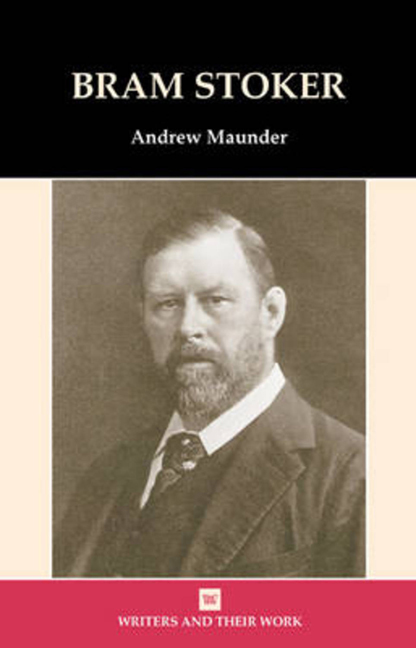4 - Writing Women
Summary
In previous chapters I have looked at some of the ways in which Stoker's novels deal with the invasion of the sacred English home and the impact that this has on the lives of both male and female characters. In this chapter, I will consider further how Stoker's texts engage with the roles of women and their assigned place in society, and how they represent the feminine. Taking into account some of the historical changes that took place between 1880 and 1910, I will try to reach conclusions about the kinds of roles for women his writing seems to support. Stoker deals with the position of women in almost all his works: the choices women make, the pressure on them to ‘act’ in a certain way, their transgressions from conventional standards of behaviour, their sexuality and their relations with men. In this chapter, however, I will focus on three novels that have received little critical attention: Miss Betty (1898), The Man (1905) and the multi-authored The Fate of Fenella (1891-2). I will also consider three short stories which are collected in the posthumous Dmcula's Guest (1914), but which were written much earlier for magazine publication: ‘The Secret of the Growing Gold’ (1892), ‘The Squaw’ (1893) and ‘The Coming of Abel Behenna’ (1914). Stoker's short stories are often overlooked but they are interesting in their own right and as texts that test some of the themes, situations and characters and techniques that recur in his full-length novels.
Contemporary reviewers of Stoker's fiction often saw his novels as dealing at least in part with the ‘Woman Question’ or what the turn-of-the-century sexologist Havelock Ellis later described in The Task of Social Hygiene (1912) as the ‘new culture of woman…’. In 1895, The Morning Post, in a review of the adventure story The Watter's Mou, singled out Stoker's drowned heroine Maggie (a name which carries echoes of Maggie Tulliver, the similarly fated heroine of George Eliot's The Mill on the Floss (I860) and the ‘human tragedy of her story for special comment, in particular ‘the human interest offered by the struggle in the girl's soul and between the conflicting duties due to a father and lover’.
- Type
- Chapter
- Information
- Bram Stoker , pp. 100 - 141Publisher: Liverpool University PressPrint publication year: 2005



